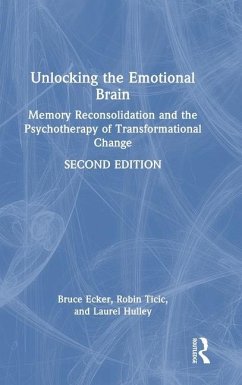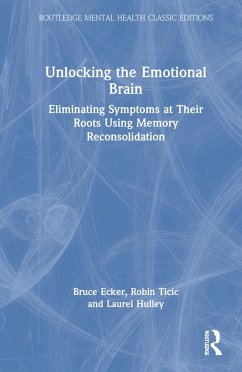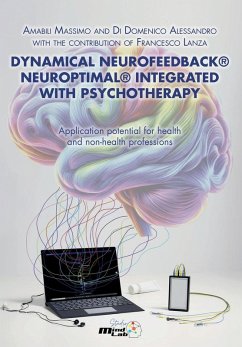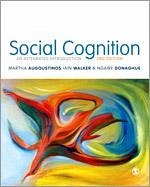
Dialectically Integrated Psychotherapy
Versandkostenfrei!
Versandfertig in 1-2 Wochen
24,99 €
inkl. MwSt.

PAYBACK Punkte
12 °P sammeln!
This five-part book describes the development of a dialectically integrative, unifying and coherent model of psychotherapy theory and practice. Part 1 discusses the principles of philosophy as they relate to psychotherapy, and identifies the value of Roy Bhaskar's critical realism. This philosophical perspective supports and guides the work as a whole. Part 2 provides descriptions of five major approaches to psychotherapy based on attachment theory, humanistic theory, psychodynamic theory, and cognitive and behavioural theories. It also provides overviews of psychosocial and lifespan perspecti...
This five-part book describes the development of a dialectically integrative, unifying and coherent model of psychotherapy theory and practice. Part 1 discusses the principles of philosophy as they relate to psychotherapy, and identifies the value of Roy Bhaskar's critical realism. This philosophical perspective supports and guides the work as a whole. Part 2 provides descriptions of five major approaches to psychotherapy based on attachment theory, humanistic theory, psychodynamic theory, and cognitive and behavioural theories. It also provides overviews of psychosocial and lifespan perspectives on psychological well-being and distress. Part 3 identifies overlaps and compatible differences across the five major approaches based on a content analysis of the descriptions provided in Part 2. These overlaps and differences are used to develop a unifying dialectical model of human psychological functioning. This model is then given central place in a meta-framework supporting the integrative application of different approaches to psychotherapy in which the crucial importance of the therapeutic relationship is recognised, as is the significance of clients' overall psychosocial environments and their place in the lifespan. Together these components constitute Dialectically Integrated Psychotherapy. Part 4 illustrates the application of Dialectically Integrated Psychotherapy through the detailed discussion and analysis of an individual therapy experience. Part 5 discusses the approach in relation to the overall aims and principles of psychotherapy integration, and compares it with other models of theoretical integration, technical integration and common factors approaches. It's implications for theory development, psychotherapy research, psychotherapy practice and psychotherapy training are discussed. The book ends with some reflections on the processes that unfolded as the work was being carried out. The thought-provoking content of this work will be of value to clinical psychologists and all psychotherapists interested in integration whatever their ways of working, those new to their profession and experienced practitioners.














